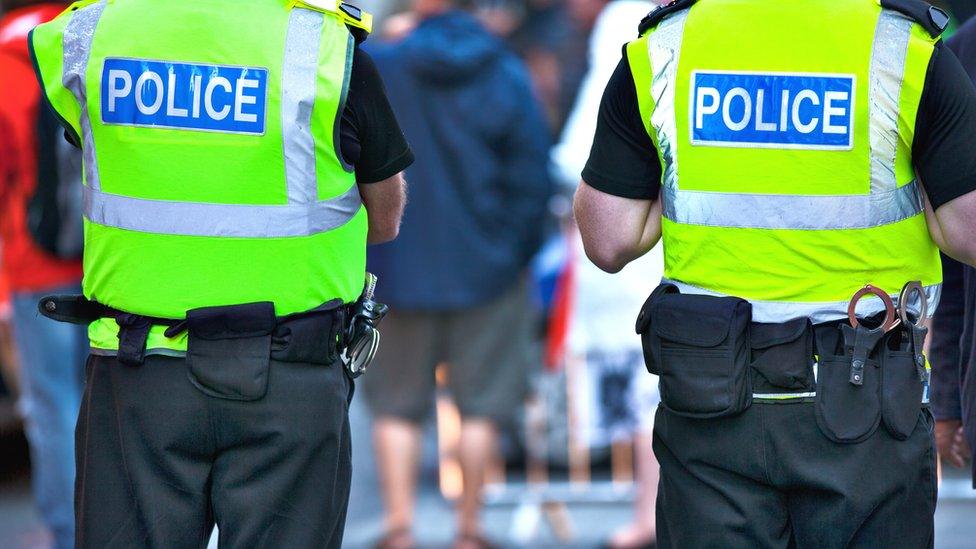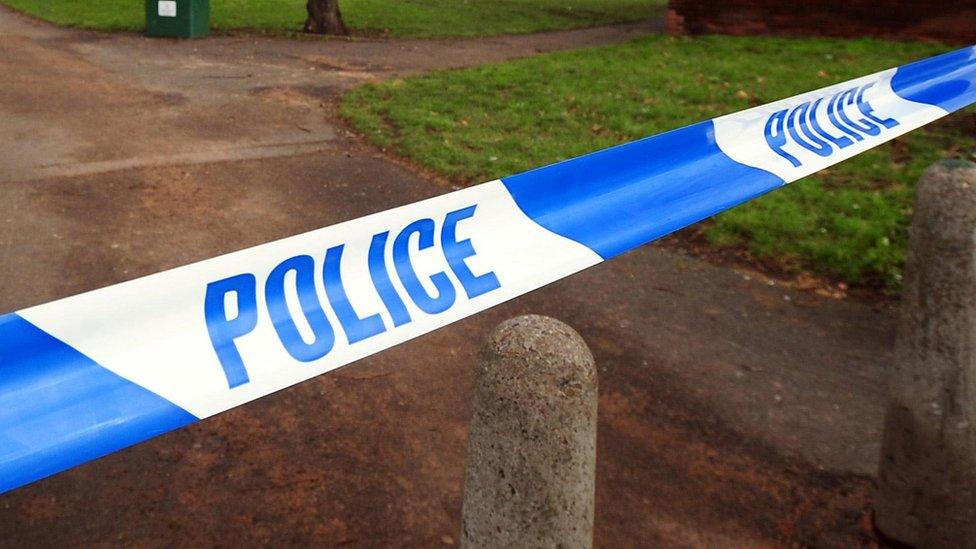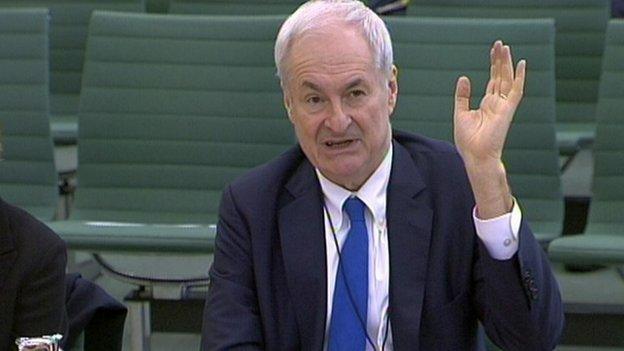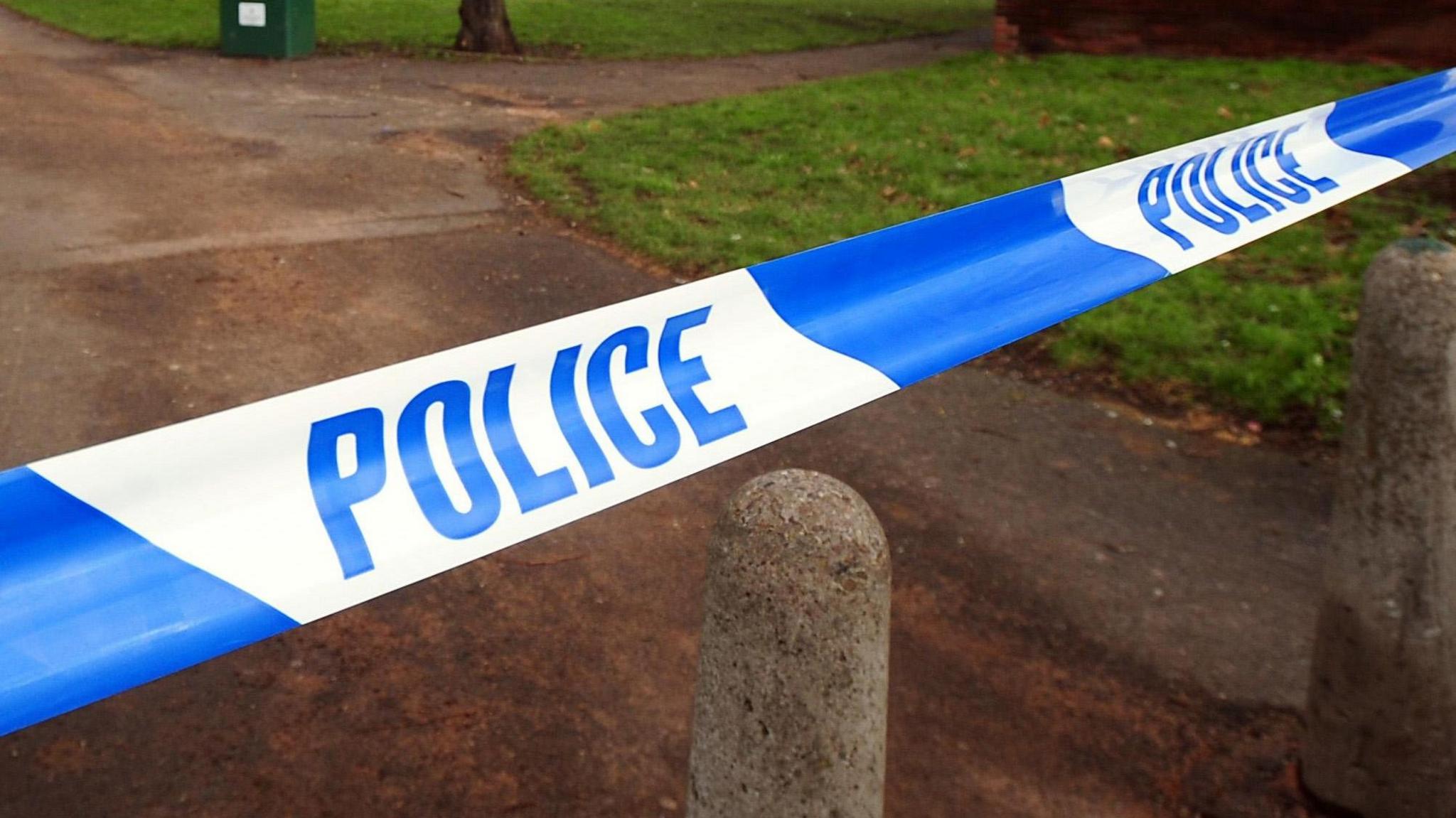Thousands of violent crime suspects released without conditions
- Published

A police bail limit of 28 days came into force in April 2017
Thousands of suspects under investigation for violent and sexual offences have been released without condition since a 28-day limit on police bail was introduced a year ago.
In one three-month period, 12 forces released more than 3,000 violent crime, murder, rape and sexual offences suspects, figures seen by the BBC show.
A police watchdog previously warned this could endanger vulnerable victims.
The Home Office said it had asked forces to review their use of bail.
Under the new measures, which were introduced in England and Wales last April, bail should only be used when deemed "necessary and proportionate" and must be limited to 28 days.
Extensions of up to three months must be authorised by a senior police officer, and longer periods only granted by a court in exceptional circumstances.
The changes were brought in to stop police bailing suspects for extended periods of time without resolution, following a series of high-profile cases.
The figures for April to June 2017, disclosed to the BBC under a Freedom of Information (FOI) request, reveal the number of suspects bailed has fallen by two-thirds since the restrictions came into force.
Among the suspects released were 1,692 people arrested for violent crimes, 768 rape suspects and 31 questioned on suspicion of murder.
'Alarming' findings
Pre-charge bail is when police release an arrested suspect but continue their investigation before deciding whether to charge them.
Suspects who are still subject to police inquiries but spared bail conditions are released "under investigation" - without a date to report back to authorities.
The BBC contacted the 43 forces in England and Wales to find out how many people suspected of violent and sexual offences had been released in this way.
The 12 constabularies who provided data were Bedfordshire, Cumbria, Derbyshire, Devon and Cornwall, Kent, Leicestershire, Merseyside, Northamptonshire, Surrey, Warwickshire, West Mercia and West Yorkshire.

Key findings:
Between April and June last year 6,683 suspected violent and sexual offenders were released without further action, 2,430 were charged and 3,149 released under investigation.
Of those released under investigation, 1,692 were suspected of violent crimes; 31 murder; 22 attempted murder; four manslaughter; 768 rape and 632 other sexual offences.
732 were bailed, an average of 244 per month, compared with 938 in March, before the measures were implemented.

Last week, England and Wales' policing watchdog HM Inspectorate of Constabulary (HMICFRS) said vulnerable victims could be put at risk by suspects who were released without bail conditions.
The BBC findings reinforced HMICFRS research that found the use of bail had fallen by 65% and in suspected domestic abuse cases by 75%.
Zoe Billingham, inspector of constabulary, said a "blanket" ban on bail use had emerged, potentially putting vulnerable people, like domestic violence victims, at risk.
"Bail is a demonstration that someone is looking out for them," she told the BBC.
"The pendulum has swung too far in one direction, we suspect," she said, adding there had been "a lack of direction" about the new arrangements.
The charity Women's Aid described the figures as "shocking" and "alarming", saying it had warned the Home Office the reforms could have a "negative impact" on the protection and safety of domestic abuse survivors.
A spokeswoman said: "We need certainty that the police are applying bail conditions in domestic abuse cases.
"There needs to be clear understanding of the risk and threat of harm to domestic abuse victims."
Implementation 'under review'
The National Police Chiefs' Council (NPCC) recognised that concerns "have been raised" about the bail reforms and welcomed the HMICFRS' recommendations.
NPCC lead for bail management, Assistant Chief Constable Darren Martland, added that the implementation of the changes were under "constant review."
Prior to their implementation, the College of Policing branded the reform plans "dangerous".
The Home Office said a large drop in the use of bail was expected but should not affect the police response to incidents of domestic abuse.
It said conditional pre-charge bail "continues to be available where it is necessary and proportionate, such as to protect victims and witnesses".
- Published3 April 2017

- Published3 March 2015

- Published28 September 2016
